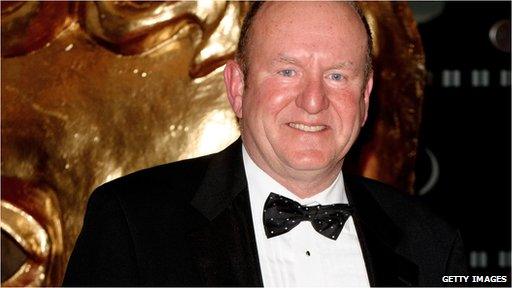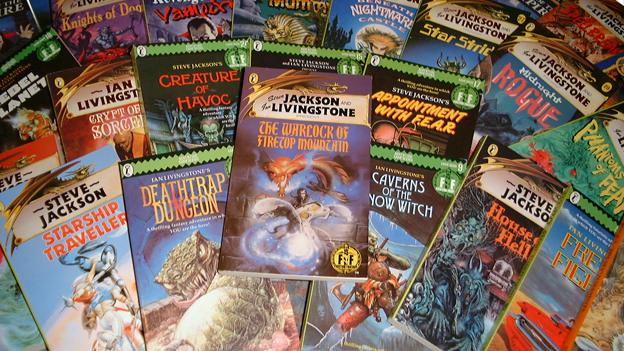Ian Livingstone applies to create 'gaming' school
- Published

Ian Livingstone is known to some as "father" of Tomb Raider Lara Croft
British games industry veteran Ian Livingstone has formally applied to launch a free school with lessons built using video gaming.
Mr Livingstone told the BBC he wanted to use games-based learning rather than relying on "relentless testing".
"I'm passionate about children who have been born into the internet. I think they learn in a different way."
The school, which could open in 2016, would be based in Hammersmith, west London.
The application to the Department for Education, submitted this week, was backed by Mr Livingstone's several trustees including Barnaby Lenon, former headmaster at Harrow, and Marion Gibbs, head teacher at James Allen School for Girls in East Dulwich.
Also on the board is David Cramer, who owns international rights for the Rubik's Cube.
By bringing gaming elements into the learning process, Mr Livingstone argued, students would learn how to problem-solve rather than just how to pass exams.
A Department for Education spokesman said: "Free schools are giving parents real choice and children of all backgrounds the chance to achieve excellence. We welcome all innovative and exciting free school proposals.
"The application process is very competitive and all proposals are rigorously assessed before they are approved."
Angry Birds
Mr Livingstone is best known for being the man behind huge franchises such as Tomb Raider and tabletop game Warhammer.
In the 80s, his Fighting Fantasy books brought an interactive element to reading that proved extremely popular.
Speaking to the BBC about the plans, Mr Livingstone said he wanted to bring those interactive principles to schooling, but stressed the school would provide learning across all core subjects.
"We're not trying to be radical in any sense," he said.
"Of course, you have to have a broad and balanced curriculum and make sure there's rigour in all subjects. But it's using a discipline like computer science to have hopefully a deeper understanding of the subjects that you're learning."

Mr Livingstone said he wanted to bring the principles of his interactive books to the classroom
He criticised other schools for relying on tests that he argued were more about assessing the school than the children in it.
"There needs to be a shift in the pedagogy of learning in classrooms because there's still an awful lot of testing and conformity instead of diversity.
"I'm not saying knowledge is bad - I'm just trying to get a bit more know-how into the curriculum."
He said he considers the trial-and-error nature of creating games as a key model for learning.
"For my mind, failure is just success work-in-progress. Look at any game studio and the way they iterate. Angry Birds was Rovio's 51st game.
"You're allowed to fail. Games-based learning allows you to fail in a safe environment."
School expansion
Free schools are a major part of the government's plan to find more school spaces around the country.
In London alone, 90,000 more spaces are said to be needed by 2016.
However, some oppose the growth of free schools, saying it makes it harder to launch state-funded community schools.
In response to the freeing up of land for nine more free schools in the capital, Bob Stapley from the National Union of Teachers said: "London certainly needs more school places, what we don't need is lots of free schools which are state-funded, independent schools.
"The crisis we've got is because the government is ideologically obsessed with free schools.
"Local authorities can no longer open community schools, they can't plan provision of school places and it is left to market forces.
"It simply isn't an effective way of providing education."
Follow Dave Lee on Twitter @DaveLeeBBC, external
- Published1 September 2014
- Published25 August 2014
